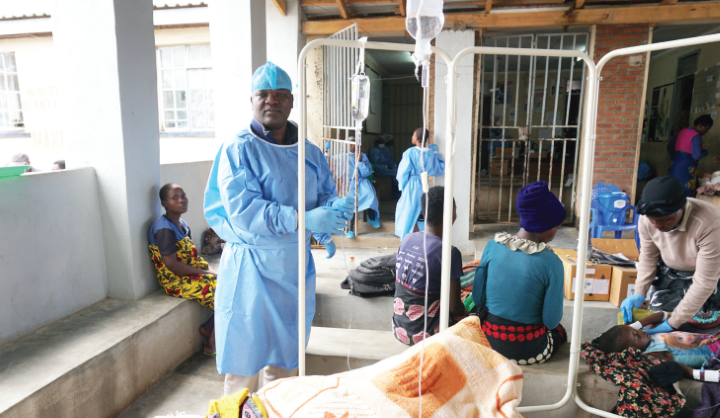Closing caregiver gap in Balaka

To educationists, the mention of Balaka conjures up images of teenagers dropping out of school due to early marriages.
But reversing the well-documented aftermath of poor early childhood care and education need no longer be confined to the youthful dropouts. The Qadria Muslim Association of Malawi (QMAM), with funding from the Norwegian Church Aid, is working with community-based childcare centres (CBCC) in the district to give children under the age of eight a solid start in life.
“Like most of my age-mates, I might have failed to achieve my dream to become a nurse because I started school late and married early, but there is no reason my children shouldn’t meet their potential because of lack of sound early childhood education,” said Ntumbwe CBCC caregiver Fanny Shaibu.
The mother of six from Ntumbwe Village, sub-Traditional Authority Kachenga, grew up believing that early childcare centres, alternatively termed ‘nursery schools’, were an urban phenomenon. Recently, she has witnessed an increasing number of children in her remote setting enrolling at the community-owned facility which has been running with support from QMAM since 2007.
Last year, she decided to join a team of caregivers at the centre which benefits about 50 children. She hopes the children will move on to primary school, proceed to higher learning and become better citizens.
This month, Shaibu was one of 30 caregivers trained by QMAM.
“It pains me to see six-year-olds going farming with their parents every morning instead of going to school. We need to close the gap and stimulate affection for education in the rural children and save them from abandoning school,” said Shaibu.
This hints at the disparities underlying the delivery of early childhood development services in rural and urban areas. Until the two-week training, Shaibu personified yet another challenge: an influx of unskilled caregivers, predominantly secondary school dropouts who tire children with repetitive replays of songs and recitals in rural CBCCs.
For five years, she has seen it all: CBCCs springing up with limited personnel and accessories; trained attendants leaving rural establishments in preference for better resourced facilities in urban areas and the vacancies being filled by unskilled people. Some centres have become community immunisation and nutritional focal points for under-fives.
With the rural areas—where over 70 percent of Malawians live—crying for a turnaround, Balaka district social welfare officer Nixon Chawinga praised the training as a boost since the childcare centres have been struggling to find skilled caregivers. Government standards require every CBCC to have 10 caregivers and Chawinga estimates that one in every two is in dire need of training.
“People are opening childcare centres without qualified caregivers and requisite resources. About 50 percent of the caregivers are untrained. We are optimistic the trainees will help raise the quality of services provided in CBCCs and advance a holistic approach, focusing on the young ones’ physical needs and psycho-social support,” he said.
In 2009, it was cited among key drawbacks when government in conjunction with Unicef embarked on Mmera Mpoyamba (a good start) campaign to raise awareness and funding for ECD.
Furthermore, the country’s strategy hinges on community-led centres which are prone to ‘brain-drain’ as trained workers vie for salaried jobs elsewhere. Chawinga stated that low retention of caregivers is a big problem because government has no incentives for them.
“Currently, we only encourage communities to reward the caregivers in kind. Champhira in Mzimba emerged as a shining example when locals started tending to the caregivers’ farms and chores as they concentrate on the children,” he said.
But the government official seems to know goodwill can be unpredictable and short-lived. In the UK, caregivers are remunerated and trained up to degree level, like all teachers. So are Kenya’s, where local government authorities allocate funds for their monthly pay.
While Malawi is still debating whether to follow suit, QMAM executive director Saiti Jambo urged the trainees to stick by the voluntary work for children’s sake.
He stated: “Studies have shown that quality early childhood development improves the enrolment, performance and retention of pupils as they progress to higher classes.”
The Norwegian Church Aid has invested K81 million in the early childhood and adolescent development initiative expiring in 2015. It is being implemented by Qadria Muslim Development Programme, and it is open to all people.





